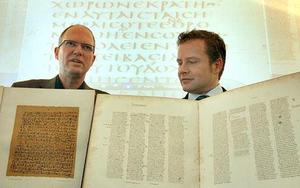OF THE
TIMES
"We have about 50% of the world's wealth but only 6.3% of its population. This disparity is particularly great as between ourselves and the peoples of Asia. In this situation, we cannot fail to be the object of envy and resentment. Our real task in the coming period is to devise a pattern of relationships which will permit us to maintain this position of disparity without positive detriment to our national security. To do so, we will have to dispense with all sentimentality and day-dreaming; and our attention will have to be concentrated everywhere on our immediate national objectives. We need not deceive ourselves that we can afford today the luxury of altruism and world-benefaction."
~ US State Department, 1948
His best bet is to step down, but his greed won't allow it. [Link]
Notice the people at a rock concert in in 1985...After this concert Queen had a new resurgence in fan popularity, note the crowds and music. How...
A powerful share that is filled with spiritual wisdom. [Link]
It is a sad thing to see the Western world, supposed bastion of freedom, individual rights, "multiculturalism".... complacently agreeing with the...
The true organizers of BLM will NEVER see justice.
To submit an article for publication, see our Submission Guidelines
Reader comments do not necessarily reflect the views of the volunteers, editors, and directors of SOTT.net or the Quantum Future Group.
Some icons on this site were created by: Afterglow, Aha-Soft, AntialiasFactory, artdesigner.lv, Artura, DailyOverview, Everaldo, GraphicsFuel, IconFactory, Iconka, IconShock, Icons-Land, i-love-icons, KDE-look.org, Klukeart, mugenb16, Map Icons Collection, PetshopBoxStudio, VisualPharm, wbeiruti, WebIconset
Powered by PikaJS 🐁 and In·Site
Original content © 2002-2024 by Sott.net/Signs of the Times. See: FAIR USE NOTICE

There is much scholarship regarding biblical texts. The Codex Sianaticus is a relatively recent find as part of the so-called minority text tradition that was ignored by the bible translators of the Reform era. See:
Pinto, Chris (2010). Lamp In The Dark:Untold History of the Bible ~ FULL FILM (2010)
[Link]
Uploaded by amy2x on Mar 3, 2011
[Link]
In his documentary, Pinto states that Codex Sianaticus contains more changes to the manuscript than any document in Biblical history. He further states that Tischendorf himself claimed that “there were some 14,800 corrections done on the manuscript.” Dr. Juan Garces , Curator, Codex Sinaiticus Project, British Library, London, commented regarding that figure “it sounds about right”. Dr. Scot McKendrick, Head of Western Manuscripts, British Library, London, then states that “Codex Sinaiticus is the most corrected Greek manuscript of the scriptures.”
(Pinto, documentary on Bible at 2:49:30)
See also books by Dean John W. Burgon.